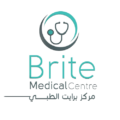Dental Advices Provided to you by: Brite Medical Center
In recent years, laser gum surgery has become more widespread for treating moderate to severe gum disease. Laser stands for light amplification by stimulated emission of radiation.
Your dentist may recommend laser surgery as an additional step after having a traditional scaling and root planing treatment.
They may recommend laser gum surgery in lieu of non-laser surgeries, such as gum flap surgery. Laser gum surgery may also be used for other dental procedures. These include gum contouring to address a gummy smile for cosmetic reasons.
The Food and Drug Administration (FDA) has approved the use of lasers for:
There’s a small body of
The
The
However, the organization cautioned that evidence is limited, and more research is recommended on the use of lasers.
For this reason, it’s very important you use a periodontist who is trained to work with lasers if you choose to get this procedure.
The cost of laser gum surgery to treat gum disease ranges based upon several factors. These include the amount of work you need done and your geographic location.
If you have dental insurance, your provider will usually pay at least a portion of the cost.
In some instances, a free consultation may be available before booking the procedure. Your initial consultation will include X-rays, which can cost anywhere from $50 to several hundred dollars.
If a scaling and planing procedure is done before laser gum surgery, the fee may range anywhere from $200 for one quadrant to $1,500 or more for your entire mouth.
Laser gum surgery may be done with a Nd:YAG type of laser using
If you’re having laser surgery to correct a gummy smile, insurance most likely won’t cover it. Gummy smile correction is considered a cosmetic procedure.
The costs for laser gummy smile surgery vary. In general, you can expect to pay between $675 and $875 per tooth.
Lasers are tubes that use powerful, pinpointed light beams of thermal energy to perform multiple tasks during gum surgery. Lasers can:
Lasers work by creating an energy change in atoms. The laser light shifts atoms from their current resting state to a stage known as the excited state. This causes the atoms to produce energy called spontaneous emission.
When the atoms return to a resting state, they emit particles of light called photons. This process provides the energy needed to perform certain functions, such as cutting tissue without the use of a blade.
The
Here’s what you can expect for laser gum surgery:
If you’re having your entire mouth done, you may need two visits that last 1 to 2 hours each.
A single quadrant can be finished in 1 to 2 hours.
Here’s what you can expect for gummy smile surgery:
Laser gum surgery can be done on the gums in any quadrant of the mouth. The lasers used for this purpose are designed to treat soft tissue.
Laser surgeries can also be done on and in teeth. These procedures use different types of lasers that are designed to treat hard tissue.
There are many types of lasers, and none of them are one-size-fits-all.
Lasers rely on varying wavelengths and power levels. Using the wrong laser can damage gum tissue. For this reason, it’s important to see a professional who has been trained in laser treatments.
Other possible complications may include:
Because the laser sterilizes the area, infection is not common. However, call your dental professional immediately if you notice any signs of infection. These include:
Some people resume their normal activities the day following surgery. Others may take a few days to feel completely up to speed.
You can expect to feel mild soreness for several days. Other temporary side effects include:
Aftercare instructions might include the following:
The healing process generally lasts a week. During that time, your periodontist may recommend you:
In the first 1 to 2 days, your periodontist may recommend you rinse your mouth every few hours with warm salt water to help soothe your mouth. Mix 1/2 teaspoon of salt in 8 ounces of water. Make sure the water isn’t too hot or cold.
Laser surgery can decrease gum disease. However, to keep your mouth clean and free from infection, you must maintain good oral hygiene habits. These include:
Laser gum surgery eliminates gum disease. It also removes tartar and bacteria, enhancing the health and appearance of teeth.
General anesthesia isn’t used for laser gum surgery. Only local anesthesia is needed, so you won’t need to fast before the procedure.
Wear comfortable, warm clothing. Often, surgical areas are kept cool to reduce bacterial growth in the environment.
Remove nose rings and tongue piercings.
If you have long hair, don’t wear a ponytail or bun. You’ll have your head resting against the chair for several hours, and a ponytail or bun may cause discomfort.
Laser gum surgery is used for dental procedures, such as treating gum disease. It’s also used to contour the gums and eliminate gummy smile.
Since there’s no scalpel or cutting, laser gum surgery eliminates the need for stitches and reduces postoperative bleeding. When this procedure is done to treat gum disease, insurance often covers it.
Last medically reviewed on June 23, 2021
Our experts continually monitor the health and wellness space, and we update our articles when new information becomes available.
Current Version
Jun 23, 2021
Written By
Corey Whelan
Edited By
Allison Tsai
Medically Reviewed By
Jennifer Archibald, DDS
Copy Edited By
Sara Giusti
Share this article
OUR BRANDS
Book Your Appontment with Our Dental Team Now: Call: +97444147405
